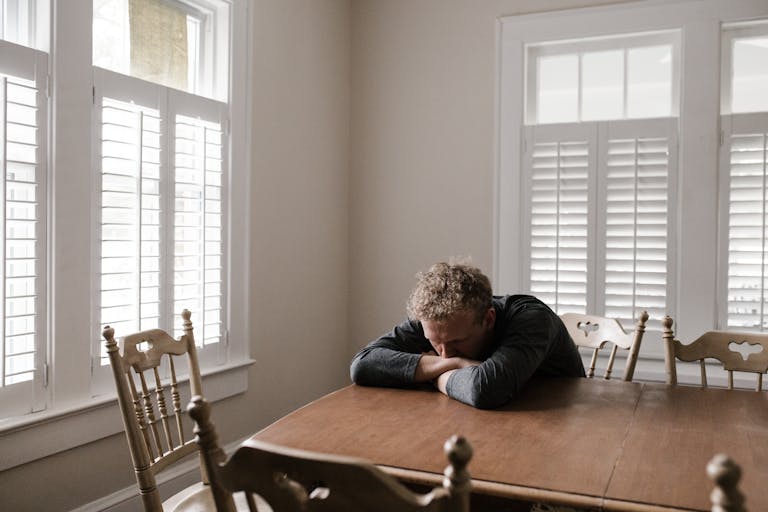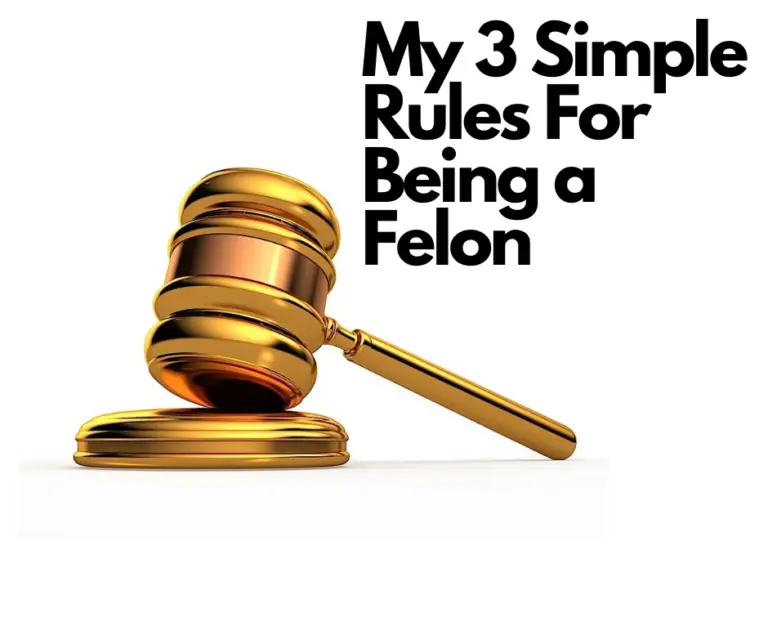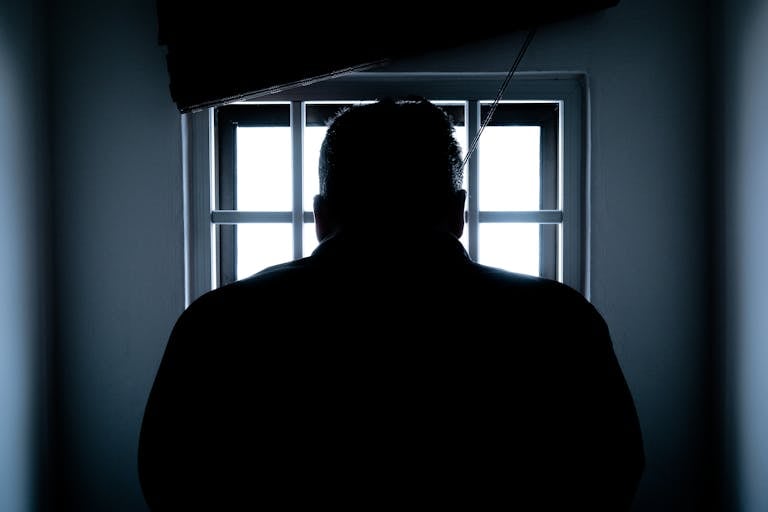10 Proven Strategies for Managing Anxiety as a Convicted Felon
Introduction: The Hidden Struggle
Did you know that approximately 70 million Americans have a criminal record? That’s nearly one in three adults walking amongst us with a conviction history.
Now, consider this: about 40 million adults in the U.S. suffer from anxiety disorders. When we combine both these statistics, we uncover a significant, often overlooked group: convicted felons grappling with anxiety.
For those navigating life post-conviction, anxiety isn’t just a fleeting worry—it’s a constant companion, often intensified by the unique challenges of reintegration. But here’s the good news: you’re not alone, and there are proven strategies to help you manage this invisible battle.
Understanding Anxiety: More Than Just Worry
Before we dive into management strategies, let’s break down what anxiety really is and why it affects convicted felons so profoundly.
What is Anxiety?
Anxiety is more than just feeling stressed or worried. It’s a persistent feeling of apprehension or dread that can interfere with daily life. Symptoms can include:
- Restlessness or feeling on edge
- Difficulty concentrating
- Rapid heartbeat
- Sweating
- Trembling
- Sleeping problems
Why Do We Develop Anxiety?
Anxiety is our body’s natural response to stress. It’s an evolutionary trait that helped our ancestors survive by staying alert to dangers. However, in our modern world, this system can sometimes go into overdrive.
Why Are Convicted Felons More Prone to Anxiety?
Convicted felons often face unique stressors that can trigger or exacerbate anxiety:
- Stigma and social judgment: The label of “felon” can lead to constant fear of being judged or rejected. This persistent worry about how others perceive you can fuel social anxiety and self-doubt.
- Employment challenges: The difficulty in finding and maintaining employment due to background checks can create chronic stress. The constant fear of job loss or inability to provide for oneself or family is a significant anxiety trigger.
- Housing discrimination: Many landlords are hesitant to rent to individuals with felony convictions. This can lead to constant worry about finding and maintaining stable housing, a basic need that many take for granted.
- Strained relationships: Incarceration often damages personal relationships. Rebuilding these connections or forming new ones can be anxiety-inducing, especially with the fear of rejection due to one’s past.
- Legal restrictions and obligations: Probation requirements, travel restrictions, and other legal obligations can create a constant state of vigilance and worry about unintentionally violating terms.
- Financial stress: Limited job prospects often lead to financial instability. The constant worry about making ends meet can significantly contribute to anxiety.
- Traumatic experiences from incarceration: Many individuals experience or witness traumatic events while incarcerated. These experiences can lead to PTSD symptoms, which often co-occur with anxiety disorders.
These factors create a perfect storm for anxiety to thrive. But understanding is the first step towards management.
My Personal Journey: Living with Anxiety Post-Conviction
As someone who has walked this path, I can tell you that anxiety after a felony conviction is crippling. I remember my first job interview post-release.
As I sat in the waiting room, my heart raced, my palms sweated, and my (dark) thoughts spiraled: “Will they reject me immediately? What if they ask about my felony? What if I panic and can’t speak?”
This anxiety bled into every aspect of life—meeting new people, applying for apartments, even going to the grocery store.
The fear of judgment and rejection was overwhelming. But through therapy, support groups, and the strategies I’m about to share, I’ve learned to manage these feelings. It’s not always easy, but it’s possible.
Real Stories: Felons Share Their Anxiety Experiences
John, 35: “After my release, I developed severe social anxiety. I was paranoid that everyone knew about my past and was judging me. It took me months to even feel comfortable going to the corner store.”
Maria, 42: “My anxiety manifested as constant worry about my future. I’d lie awake at night, heart pounding, imagining worst-case scenarios about losing my job or housing.”
Derek, 28: “I struggled with panic attacks, especially in crowded places. I felt trapped, like I couldn’t escape if I needed to. It reminded me of being in prison.”
These stories highlight the diverse ways anxiety can impact life post-conviction. But they also show that recovery and management are possible.
10 Proven Strategies for Managing Anxiety as a Convicted Felon
- Mindfulness Meditation
- Cause: Helps ground you in the present moment, reducing the focus on past regrets or future worries.
- Effect: Reduces rumination and future-oriented anxieties.
- How to implement: Start with short, guided meditations using apps like Headspace or Calm. Begin with just 5 minutes a day and gradually increase. Focus on your breath or bodily sensations to anchor yourself in the present.
- Felon-specific tip: Use mindfulness to manage anxiety during potentially stressful situations like job interviews or court appearances.
- Consistent Exercise
- Cause: Releases endorphins, burns off excess energy, and provides a healthy outlet for stress.
- Effect: Improves mood, reduces physical symptoms of anxiety, and enhances overall well-being.
- How to implement: Aim for at least 30 minutes of moderate exercise most days of the week. This could be brisk walking, jogging, cycling, or bodyweight exercises you can do at home.
- Felon-specific tip: If gym access is limited due to financial constraints or discomfort in public spaces, focus on home workouts or outdoor activities like running or hiking.
- Cognitive Behavioral Therapy (CBT)
- Cause: Teaches you to identify and challenge negative thought patterns and beliefs.
- Effect: Reduces anxiety symptoms and improves coping skills by changing how you think and react to anxiety-provoking situations.
- How to implement: Work with a therapist trained in CBT. Many offer sliding scale fees or telehealth options. Practice CBT techniques like thought challenging and behavioral experiments between sessions.
- Felon-specific tip: Look for therapists experienced in working with ex-offenders who understand the unique challenges you face.
- Support Groups
- Cause: Provides a safe space to share experiences and learn from others in similar situations.
- Effect: Reduces feelings of isolation and provides practical coping strategies from peers.
- How to implement: Look for local support groups for ex-offenders or individuals with anxiety. If in-person options are limited, consider online forums or virtual support groups.
- Felon-specific tip: Groups like NAACP’s “Welcome Home” program or local reentry programs often offer support groups tailored to ex-offenders.
- Breathing Exercises
- Cause: Activates the parasympathetic nervous system, which controls the body’s relaxation response.
- Effect: Calms the body’s stress response, reducing physical symptoms of anxiety like rapid heartbeat and shallow breathing.
- How to implement: Practice techniques like box breathing (inhale for 4 counts, hold for 4, exhale for 4, hold for 4) or diaphragmatic breathing. Aim to do this for 5-10 minutes daily and during anxious moments.
- Felon-specific tip: Use breathing exercises discreetly in anxiety-provoking situations like meetings with probation officers or job interviews.
- Journaling
- Cause: Allows for emotional release and self-reflection, helping to process complex feelings and experiences.
- Effect: Helps identify anxiety triggers, track progress, and gain insights into thought patterns.
- How to implement: Set aside 10-15 minutes daily to write. Focus on your feelings, challenges, and successes. Consider prompts like “What’s causing me anxiety today?” or “What’s one thing I’m proud of?”
- Felon-specific tip: Use journaling to document your reintegration journey, including goals achieved and obstacles overcome.
- Healthy Sleep Habits
- Cause: Regulates mood and stress hormones, ensuring your body and mind are well-rested.
- Effect: Improves resilience to anxiety and enhances overall mental health.
- How to implement: Aim for 7-9 hours of sleep per night. Establish a consistent sleep schedule, create a relaxing bedtime routine, and avoid screens before bed.
- Felon-specific tip: If you’re struggling with nightmares or insomnia related to incarceration experiences, consider seeking help from a sleep specialist familiar with trauma-related sleep issues.
- Limiting Caffeine and Alcohol
- Cause: Reduces intake of substances that can mimic or worsen anxiety symptoms.
- Effect: Improves overall mood stability and reduces physical anxiety symptoms.
- How to implement: Gradually reduce caffeine intake, especially after noon. If you drink alcohol, do so in moderation or consider cutting it out completely.
- Felon-specific tip: Be mindful that substance use can violate probation or parole terms. Developing healthy coping mechanisms is crucial for long-term success.
- Progressive Muscle Relaxation (PMR)
- Cause: Releases physical tension in the body through systematic tensing and relaxing of muscle groups.
- Effect: Reduces anxiety-related muscle tension and promotes overall relaxation.
- How to implement: Starting with your toes and working up to your head, tense each muscle group for 5 seconds, then relax for 30 seconds. Practice this for 10-15 minutes daily.
- Felon-specific tip: Use PMR to manage anxiety in confined spaces or situations where other coping strategies might be less practical.
- Volunteering or Helping Others
- Cause: Shifts focus outward, provides a sense of purpose, and helps build positive connections in the community.
- Effect: Improves self-esteem, reduces self-focused anxiety, and can help change negative self-perceptions.
- How to implement: Look for local volunteering opportunities that align with your interests and skills. Start small, perhaps a few hours a month, and increase as you feel comfortable.
- Felon-specific tip: Some organizations specifically welcome volunteers with criminal records. This can be a great way to build a positive track record and expand your network.
Remember, everyone’s journey with anxiety is unique. It may take time to find the strategies that work best for you. Be patient with yourself and celebrate small victories along the way. If you’re struggling, don’t hesitate to seek professional help. Many mental health professionals are experienced in working with individuals with criminal records and can provide tailored support.
Recognizing Anxiety: Red Flags and Stressors
Be aware of these potential anxiety triggers:
- Job interviews or workplace interactions
- Legal proceedings or meetings with probation officers
- Social gatherings or meeting new people
- Financial pressures
- Anniversary dates related to conviction or release
Watch for these red flags:
- Increased irritability or restlessness
- Changes in sleep patterns
- Difficulty concentrating
- Increased substance use
- Physical symptoms like headaches or stomach issues
Frequently Asked Questions
- Q: Can anxiety lead to relapse? A: Untreated anxiety can increase the risk of substance abuse and potentially lead to relapse. It’s crucial to address anxiety as part of your overall recovery plan.
- Q: Will my anxiety ever go away completely? A: While anxiety may not disappear entirely, with proper management techniques, its impact on your daily life can be significantly reduced.
- Q: Should I disclose my anxiety to my employer? A: This is a personal decision. If your anxiety qualifies as a disability, you may be entitled to reasonable accommodations. Consider discussing this with a career counselor or legal advisor.
- Q: Can medication help with anxiety? A: For some individuals, medication can be an effective part of anxiety treatment. Consult with a healthcare provider to discuss if this option is right for you.
- Q: How do I explain my anxiety to my family? A: Be honest about your experiences and feelings. Provide them with resources to understand anxiety better. Remember, their support can be crucial in your management journey.
Quick Reference: Anxiety Triggers and Strategies for Felons
Here’s a quick reference chart to help you match common anxiety triggers with effective management strategies:
| Trigger/Stressor | Potential Remedy/Strategy |
| Job interviews | 1. Mindfulness meditation<br>2. Breathing exercises<br>3. Progressive muscle relaxation |
| Social situations | 1. Cognitive Behavioral Therapy<br>2. Support groups<br>3. Volunteering |
| Legal obligations (e.g., meeting with probation officer) | 1. Journaling<br>2. Breathing exercises<br>3. Mindfulness meditation |
| Financial stress | 1. Regular exercise<br>2. Support groups<br>3. Cognitive Behavioral Therapy |
| Relationship difficulties | 1. Journaling<br>2. Support groups<br>3. Cognitive Behavioral Therapy |
| Negative self-perception | 1. Volunteering<br>2. Cognitive Behavioral Therapy<br>3. Journaling |
| Insomnia or sleep issues | 1. Healthy sleep habits<br>2. Limiting caffeine and alcohol<br>3. Progressive muscle relaxation |
| Flashbacks or trauma-related anxiety | 1. Cognitive Behavioral Therapy<br>2. Mindfulness meditation<br>3. Support groups |
| General stress or overwhelm | 1. Regular exercise<br>2. Breathing exercises<br>3. Progressive muscle relaxation |
Remember, while this chart provides quick suggestions, you may find that different combinations of strategies work best for you. Don’t hesitate to experiment and find what works best for your individual needs.
Conclusion: Your Path Forward
Managing anxiety as a convicted felon is challenging, but it’s far from impossible. By implementing these strategies and seeking support, you can significantly improve your quality of life and mental well-being.
Remember, seeking help is a sign of strength, not weakness. If you’re struggling with anxiety, consider reaching out to a mental health professional who specializes in working with individuals with criminal records.
For information on anxiety treatment programs tailored for individuals with felony convictions, check out our comprehensive guide: “Top Mental Health Resources for Ex-Offenders.”
Your past doesn’t define your future. With the right tools and support, you can manage your anxiety and build the life you envision for yourself.







